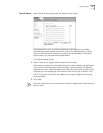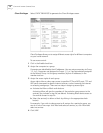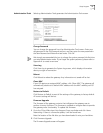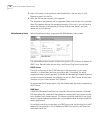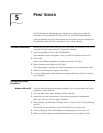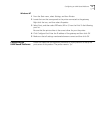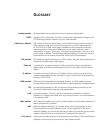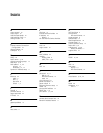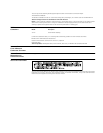GLOSSARY
Analog modem Analog modem uses existing phone lines to send and receive data.
DHCP Dynamic Host Configuration Protocol. This protocol automatically configures the
TCP/IP settings of every computer on your home network.
DNS Server Address DNS stands for Domain Name System, which allows Internet host computers to
have a domain name (such as 3com.com) and one or more IP addresses (such
as 192.34.45.8). A DNS server keeps a database of host computers and their
respective domain names and IP addresses, so that when a domain name is
requested (as in typing “3com.com” into your Internet browser), the user is sent
to the proper IP address. The DNS server address used by the computers on your
home network is the location of the DNS server your ISP has assigned.
DSL modem DSL stands for digital subscriber line. A DSL modem uses your existing phone lines
to send and receive data at high speeds.
Ethernet A standard for computer networks. Ethernet networks that are connected by
special cables and hubs move data around at up to 100 million bits per second
(Mbps).
IP address IP stands for Internet Protocol. An IP address, which consists of a series of four
numbers separated by periods, identifies a single, unique Internet computer host.
Example: 192.34.45.8.
ISDN modem ISDN stands for Integrated Services Digital Network. An ISDN modem uses your
existing phone lines to send and receive data at higher speeds than analog modems.
ISP Internet service provider. An ISP is a business that provides connectivity to the
Internet for individuals, businesses, and organizations.
LAN Local area network. A LAN is a group of computers and devices connected
together in a relatively small area (such as a house or office). Your home network
is considered a LAN.
MAC address MAC stands for media access control. A MAC address is the hardware address of a
device connected to a network.
NAT Network address translation. This process allows all of the computers on your
home network to use one IP address. Using the NAT capability of the Home
Ethernet Gateway, you can access the Internet from any computer on your home
network without having to purchase more IP addresses from your ISP.
Print server A device that enables a printer to be shared across a network. The Home Ethernet
Gateway can be used as a print server for your home network.



